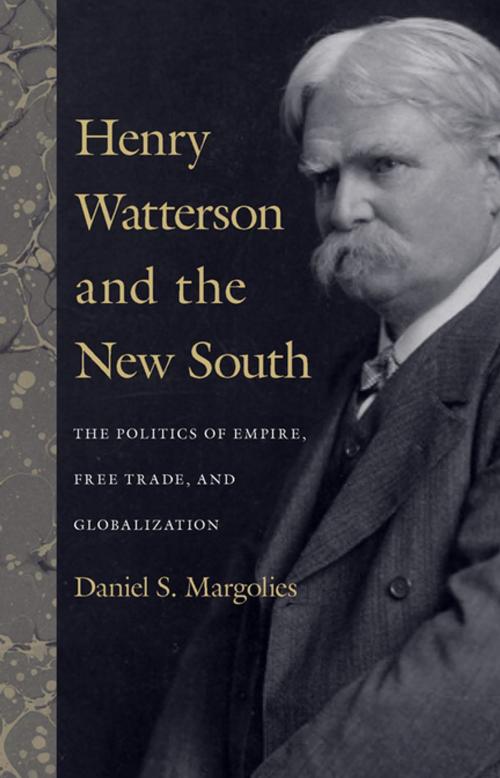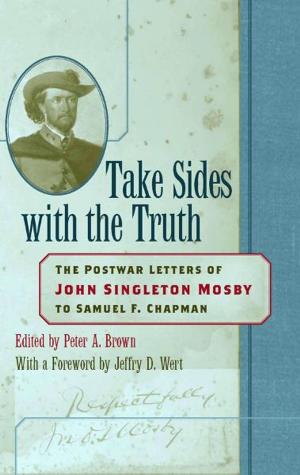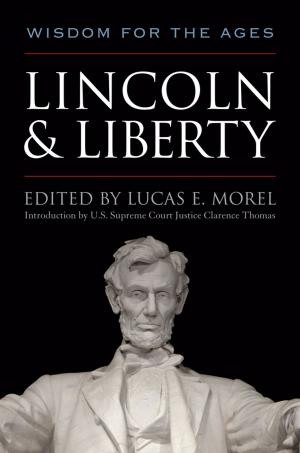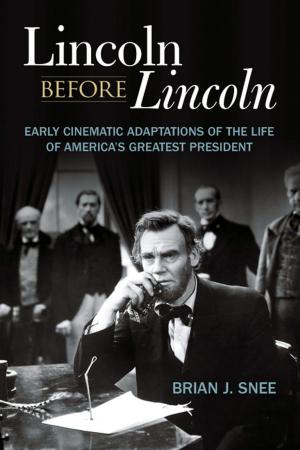Henry Watterson and the New South
The Politics of Empire, Free Trade, and Globalization
Nonfiction, History, Americas, United States, Biography & Memoir| Author: | Daniel S. Margolies | ISBN: | 9780813138527 |
| Publisher: | The University Press of Kentucky | Publication: | September 1, 2011 |
| Imprint: | The University Press of Kentucky | Language: | English |
| Author: | Daniel S. Margolies |
| ISBN: | 9780813138527 |
| Publisher: | The University Press of Kentucky |
| Publication: | September 1, 2011 |
| Imprint: | The University Press of Kentucky |
| Language: | English |
Henry Watterson, editor of the Louisville Courier-Journal during the tumultuous decades between the Civil War and World War I, was one of the most influential and widely read journalists in American history. At the height of his fame in the early twentieth century, Watterson was so well known that his name and image were used to sell cigars and whiskey. A major player in American politics for more than fifty years, Watterson personally knew nearly every president from Andrew Jackson to Woodrow Wilson. Though he always refused to run, the renowned editor was frequently touted as a candidate for the U.S. Senate, the Kentucky governor's office, and even the White House.
Shortly after his arrival in Louisville in 1868, Watterson merged competing interests and formed the Courier-Journal, quickly establishing it as the paper of record in Kentucky, a central promoter of economic development in the New South, and a prominent voice on the national political stage. An avowed Democrat in an era when newspapers were openly aligned with political parties, Watterson adopted a defiant independence within the Democratic Party and challenged the Democrats' consensus opinions as much as he reinforced them.
In the first new study of Watterson's historical significance in more than fifty years, Daniel S. Margolies traces the development of Watterson's political and economic positions and his transformation from a strident Confederate newspaper editor into an admirer of Lincoln, a powerful voice of sectional reconciliation, and the nation's premier advocate of free trade. Henry Watterson and the New South provides the first study of Watterson's unique attempt to guide regional and national discussions of foreign affairs. Margolies details Watterson's quest to solve the sovereignty problems of the 1870s and to quell the economic and social upheavals of the 1890s through an expansive empire of free trade. Watterson's political and editorial contemporaries variously advocated free silverism, protectionism, and isolationism, but he rejected their narrow focus and maintained that the best way to improve the South's fortunes was to expand its economic activities to a truly global scale.
Watterson's New Departure in foreign affairs was an often contradictory program of decentralized home rule and overseas imperialism, but he remained steadfast in his vision of a prosperous and independent South within an American economic empire of unfettered free trade. Watterson thus helped to bring about the eventual bipartisan embrace of globalization that came to define America's relationship with the rest of the world in the twentieth century. Margolies's groundbreaking analysis shows how Watterson's authoritative command of the nation's most divisive issues, his rhetorical zeal, and his willingness to stand against the tide of conventional wisdom made him a national icon.
Henry Watterson, editor of the Louisville Courier-Journal during the tumultuous decades between the Civil War and World War I, was one of the most influential and widely read journalists in American history. At the height of his fame in the early twentieth century, Watterson was so well known that his name and image were used to sell cigars and whiskey. A major player in American politics for more than fifty years, Watterson personally knew nearly every president from Andrew Jackson to Woodrow Wilson. Though he always refused to run, the renowned editor was frequently touted as a candidate for the U.S. Senate, the Kentucky governor's office, and even the White House.
Shortly after his arrival in Louisville in 1868, Watterson merged competing interests and formed the Courier-Journal, quickly establishing it as the paper of record in Kentucky, a central promoter of economic development in the New South, and a prominent voice on the national political stage. An avowed Democrat in an era when newspapers were openly aligned with political parties, Watterson adopted a defiant independence within the Democratic Party and challenged the Democrats' consensus opinions as much as he reinforced them.
In the first new study of Watterson's historical significance in more than fifty years, Daniel S. Margolies traces the development of Watterson's political and economic positions and his transformation from a strident Confederate newspaper editor into an admirer of Lincoln, a powerful voice of sectional reconciliation, and the nation's premier advocate of free trade. Henry Watterson and the New South provides the first study of Watterson's unique attempt to guide regional and national discussions of foreign affairs. Margolies details Watterson's quest to solve the sovereignty problems of the 1870s and to quell the economic and social upheavals of the 1890s through an expansive empire of free trade. Watterson's political and editorial contemporaries variously advocated free silverism, protectionism, and isolationism, but he rejected their narrow focus and maintained that the best way to improve the South's fortunes was to expand its economic activities to a truly global scale.
Watterson's New Departure in foreign affairs was an often contradictory program of decentralized home rule and overseas imperialism, but he remained steadfast in his vision of a prosperous and independent South within an American economic empire of unfettered free trade. Watterson thus helped to bring about the eventual bipartisan embrace of globalization that came to define America's relationship with the rest of the world in the twentieth century. Margolies's groundbreaking analysis shows how Watterson's authoritative command of the nation's most divisive issues, his rhetorical zeal, and his willingness to stand against the tide of conventional wisdom made him a national icon.















